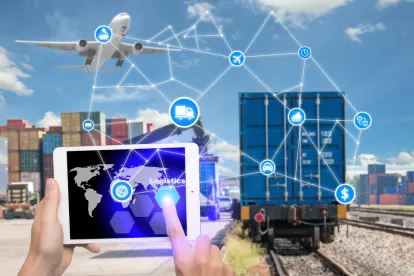On Jan. 6, 2020, the U.S. government amended its dual-use export controls to cover certain software used in Artificial Intelligence (AI) applications. Specifically, the Bureau of Industry and Security (BIS) amended the Export Administration Regulations (EAR) to impose license requirements on the export and reexport of U.S.-origin software specially designed to automate the analysis of geospatial imagery to all destinations, except Canada. See the full text of the interim final rule implementing the new changes.
Items Included Under New Licensing Requirements
BIS has determined that export controls on this category of software are necessary because the software may confer significant military and intelligence advantages to the United States. Accordingly, BIS has created a temporary series of Export Control Classification Numbers (ECCN), known as the 0Y521 series, which includes the following ECCNs: 0A521 (systems, equipment, and components), 0B521 (test, inspection, and production equipment), 0C521 (materials), 0D521 (software), and 0E521 (technology). Commodities added to any 0Y521 series ECCN are controlled for Regional Stability (RS) Column 1 reasons, which triggers licensing requirements for exports or reexports to any country besides Canada
The first category in the series to be enumerated is 0D521, which covers geospatial imagery software specially designed for training a Deep Convolutional Neural Network (CNN) to automate the analysis of geospatial imagery and point clouds, and having all of the following characteristics:
1.Provides a graphical user interface that enables the user to identify objects (e.g., vehicles, houses, etc.) from within geospatial imagery and point clouds in order to extract positive and negative samples of an object of interest;
2.Reduces pixel variation by performing scale, color, and rotational normalization on the positive samples;
3.Trains a Deep CNN to detect the object of interest from positive and negative samples; and
4.Identifies objects in geospatial imagery using the trained Deep CNN by matching the rotational pattern from the positive samples with the rotational pattern of objects in the geospatial imagery.
The new rule further clarifies: “A point cloud is a collection of data points defined by a given coordinate system. A point cloud is also known as a digital surface model.”
The practical scope of the restrictions is dependent on the interpretation of “geospatial imagery and point clouds,” which remains to be seen. Companies reviewing their operations and the applicability of these regulations should therefore keep in mind that the controls could include software training AI in the recognition of a broad range of imagery.
Compliance Considerations
Those working with software used to train AI systems in image recognition should review the software to determine whether it is captured under the new classification. If the software is classified as 0D521, anyone handling or with access to U.S.-origin 0D521 software may require an export license for the following:
•Transport of 0D521 software on computers or thumb drives outside of the United States; and
•Access to 0D521 software by non-U.S.-person employees or researchers.
Affected companies should account for product classification analysis and potential license processing time when planning their product fulfillment timelines. In addition, U.S. companies that deal in software classified under ECCN 0D521 may now be subject to mandatory filing requirements with the Committee on Foreign Investment in the United States (CFIUS) if they are the target of non-U.S. investment.
This temporary export classification under the 0Y521 series will last for up to one year, at which point BIS must reclassify the item under a different ECCN. Although the controls described in this alert are effective immediately, interested parties may submit comments on the control of the items to BIS until March 6, 2020, for consideration during the reclassification process.
AI companies and institutions should consider using this opportunity to take stock of their AI-related software and technology in preparation for additional future controls. The U.S. government is conducting ongoing efforts pursuant to the Export Control Reform Act of 2018 (ECRA) to identify “emerging technologies” not currently subject to export licensing requirements, but which for military or foreign policy purposes may warrant additional controls. Though the licensing requirements detailed in this alert are not implemented as a part of the ECRA, additional controls on AI are widely expected in the coming year.






 />i
/>i

